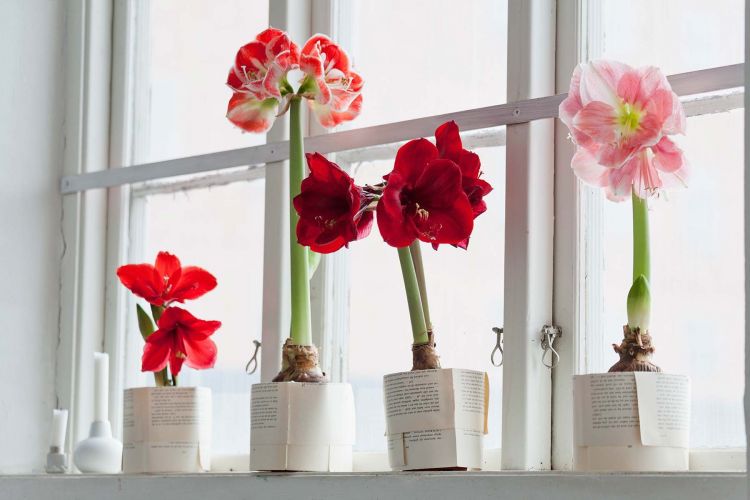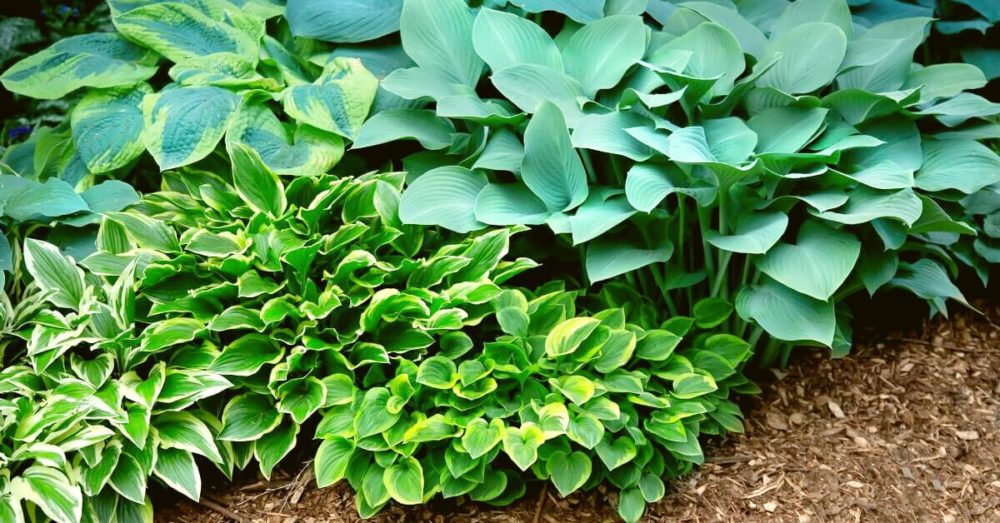During these cold months, enjoy the tones and beauty of the amaryllis. These are the care and conditions to enjoy the amaryllis.
Amaryllis or amaryllis is how this plant of the Amaryllidaceae family is popularly known and whose scientific name is Hippesastrum. It comes from Central and South America, as well as the Caribbean, where beautiful varieties can also be found. The beauty and size of its flowers has aroused the interest of specialists, which is why there are a large number of hybrids that produce flowers of very different colors, as well as variegated… There are also dwarf species that produce four flowers per stem.
Did you know…? Amaryllis Belladonna produces large flowers and is an excellent plant to grow in a container. Of course, it is very toxic, keep it away from pets and children.
The flower of this bulb is bell-shaped, with six petals and very prominent stamens. It has green and elongated leaves that come out after flowering, although sometimes they come out at the same time as the flowers. In these winter months it is time to plant the bulbs so that they will flower in a few weeks. Amaryllises in bloom can be found in florists, they come from bulbs that have been “forced” to produce an early bloom.
EVERYTHING YOU NEED TO KNOW ABOUT AMARILIS
- What are the steps to follow to plant an amaryllis? First, choose a pot that is only slightly larger than the bulb, as they grow better this way. Next, place the bulb in the substrate, so that two thirds of it is covered, leaving the upper part in the air. Do not forget to put a layer of sand so that there is good drainage. Until it blooms, it should be watered about once a week, then more abundant waterings will be made.
- How long do the flowers last? It depends a lot on the care you give it: temperature, light…, but if you keep them in a cool place, well watered and fertilized, they usually last from three to six weeks.
- Can anything be done to make the flowers bigger? The larger the bulb, the larger the flowers it will give, they can measure up to 20 cm in diameter. Also, depending on the variety, the flowers will have different diameters; dwarf species bear much smaller flowers. The amaryllis Belladonna, which comes from Africa, bears very large flowers that bloom from mid-winter to late summer. This variety is also called pink lily and has a larger, more rounded bulb than the rest.
- Is it convenient to transplant the bulbs? Yes, the bulbs can last for many years, so it is appropriate to transplant it every three or four years, but always remember not to put it in a pot that is not too large.
- Is it easy to multiply these plants? Yes. The most common ways to do it are two: either by cutting the bulb into segments and planting them in different pots, or by separating the small bulblets that usually grow around the big one and planting these independently. Amaryllis can also be obtained from seeds, sowing is done in autumn, but it is a slower and more complicated process.
- How to make a bulb last from one year to the next? To achieve this purpose, cut the flowers just as they wilt, including the thick stem. Continue watering and fertilizing as usual until the leaves dry. When this happens, cut them at ground level and suspend irrigation and fertilization. If you leave the bulb in the pot, move it to a dark, cool and dry place, so that it spends the rest period there. If you prefer to take it out, wrap it in newspaper and store it in an equally dry, cool and dark place.
AMARILIS TECHNICAL DATA SHEET
- Light. While it flowers, it needs ample light but not direct sun. When the flowers and leaves fall and go dormant, move them to a dark and dry place.
- Temperature. The amaryllis can not stand frost or temperatures below 6º C. The ideal is an average temperature of 18º C, while they are in flower.
- Irrigation. It is essential to water from below, since if the flowers or leaves get wet, the plant will rot. While it is in flower, it is necessary to water a little, once a week. When the flowers are in all their splendor, two or three times a week and when they lose their leaves, stop watering, as the rest season begins.
- Pass. From the beginning of flowering until it loses its leaves, it needs a liquid fertilizer for flowering plants every two weeks. It is important that it includes iron and magnesium.
MOST COMMON PROBLEMS OF AMARILIS
- Mold appears on new shoots. This occurs when there has been little ventilation where they have been stored during the resting period. To fix it, spray them with sulfur and put them in a well-ventilated area.
- The tips of the leaves turn yellow. Indicates an excess of water: you have to let the substrate dry and then reduce the risks.
- The buds that come out rot without ever blooming. The cause is that water has fallen on them when watering. It is very important that the water only wets the substrate, since both the flowers and the leaves of this plant are very sensitive to humidity and can be damaged if they get wet.









